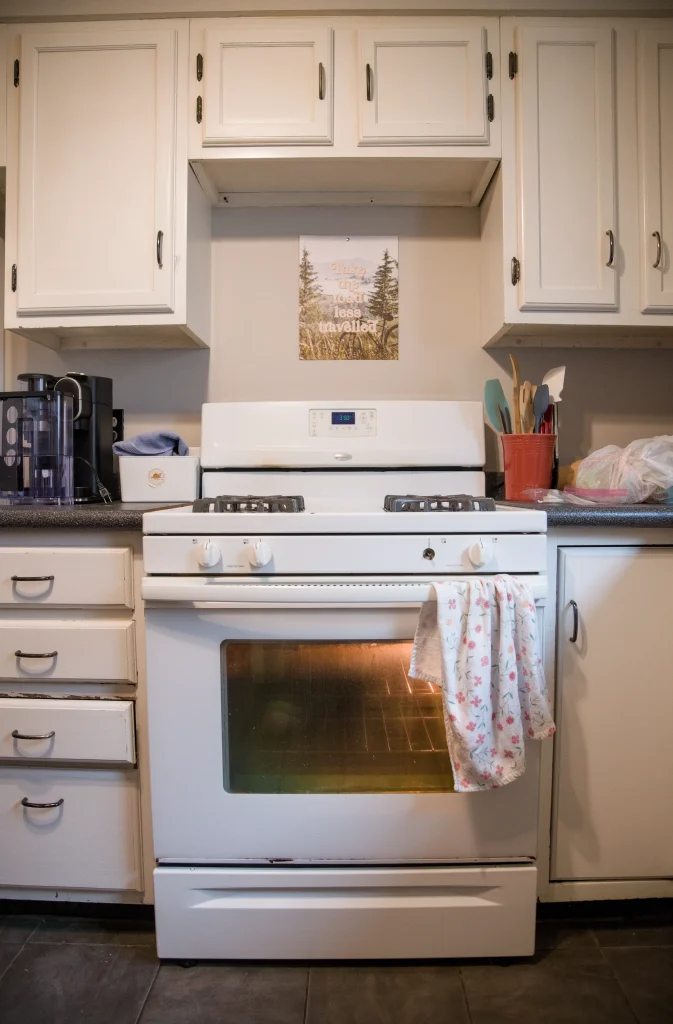
What is an American Kitchen?
No, seriously; what makes a kitchen American? Is it the type of food that’s cooked in it? Is it the people that are cooking? Does it even matter where it is, physically?
I thought of this as I baked my banana bread the other night (that’s what’s in the oven). Is my kitchen American? I’m American; banana bread seems pretty American; we obviously live in America. But what about my neighbors down the street, who speak Spanish at home, or some other household, speaking some other language not spoken by the majority of America?
It seems, from my small, short-lived perspective, that our very nationality has become divisive. This question, “what is American?” gnaws at the backs of our skulls, begging for an answer. In an attempt to dull the sensation, some lunge forth decisively, making clear to the world what they think, and more importantly, that they are it. And, they declare that everyone else hates their America — that they are un-American.
Part of this blog post was originally going to express my anger towards those who “denounce their American identity,” for I felt that doing so just gave in to division. I felt like people should embrace their own version of American identity, as a way to stand up to reductionism. For me, this principle works — however, one of my friends helped me realize that my anger towards others may be quite misguided.
First off, does anyone actually “denounce their American identity,” and if so, who? I have met some and seen others online, though I must note that a great few were other kids, when I was in middle or high school. Not that we shouldn’t consider the political opinions of young people, but there’s something different and temporary (I hope, for most people) about discovering communist memes and then making it your whole political “ideology” for a few years.
There are definitely some people who do denounce their American identity, though the number is probably, in reality, quite small. Most certainly, unlike the major rhetoric, it is not “the Democrats” — from what I can gather, people who actually denounce America would be equally upset to be mistaken for the party in blue. Largely, those I have encountered are marked more so by their opposition to government in general, rather than their left-right political standing.
Then too, as my friend pointed out, there are people who reject America not so much out of choice, but out of predicament — people who are so much disadvantaged by systemic issues that they simply can’t take it anymore. She brought up James Baldwin as a prime example, who moved to Paris to escape rampant racism and homophobia in America. I don’t think he in particular rejected American identity — indeed, it seems quite the opposite, he remained very deeply invested in American issues throughout his whole life, and displayed such in his writing and activism.
Regardless, I think Baldwin serves as good proof that one’s embracement, acceptance, or rejection of American identity may be less so the result of personal taste, and more so the unfortunate consequence of one’s social advantage or disadvantage. It makes sense, then, that I, being a white male from an upper-middle-class family, would embrace it so strongly — pretty much everything (aside from queerphobia, minimal where I live/study) is stacked in my favor. Even those who reject it while remaining on American soil are perhaps just reeling from pain in their life, whatever form it takes.
I think the whole situation, therefore, is simply a tragedy. It’s a tragedy of modern American society that people are driven to run from / hate / reject their own country… left to feel as ‘outsiders.’ Yet, it is not so much a complete tragedy, because I still have hope that it can be solved; perhaps by those who are still able to fight back from within. Therefore, if you are not so tired out that you cannot breathe some American air without choking, I implore you to embrace your American identity as a way to fight back against an impending cultural monopoly. Fly that flag, and fly it high.
But let others fly it, too. It is a sad thing that the American flag has become a symbol of aggression (I’m looking at you, tattered-cloth skull-embossed bullet-pierced decal plastered on the back of a Ford 4×4), but the underlying problem is that some Americans think that other Americans aren’t being Americans “correctly.” Trying to just flip the table/aisle around isn’t helpful — we need a way to make the flag stretch all the way across, reminding us of the great social fabric that joins us together.
The truth is, no one can decide what is “truly American.” America will be what she is — neither you nor I can decide its present or its future alone. We all live here together, and we must share it — this land is my land, this land is your land… this land was made for you and me.
Leave a Reply